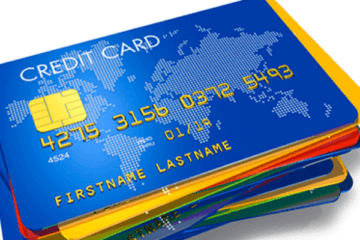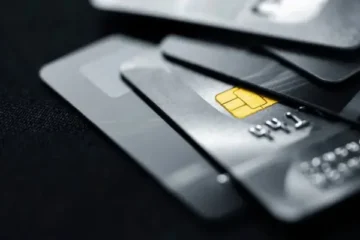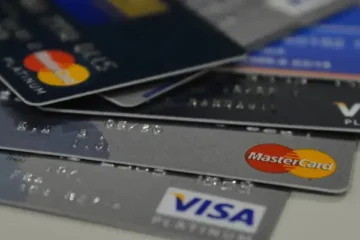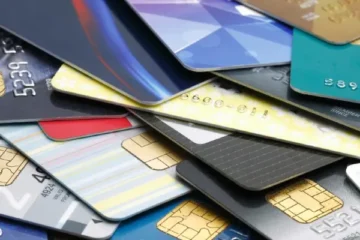Secured Loans for Self-Employed Workers: Is It Worth It?
If you’re self-employed and have ever tried to get a loan, you’ve probably hit a wall when they asked for a pay stub or proof of steady income. The good news? It’s totally possible to get approved even if you work independently.
Advertisement
And even better: there are banks and fintechs out there offering easier options for people who hustle on their own — from side gigs to freelance work to small businesses.
Advertisement
In this guide, we’re going straight to the point and covering everything you need to know to get a loan as a self-employed worker. Let’s go.
What is considered a self-employed worker?
A self-employed worker is anyone who works on their own without being tied to a company or boss. This could be an Uber driver, DoorDash delivery person, barber, freelance designer, Etsy seller, or someone making and selling food from home.
Advertisement
In the U.S., the most common types of self-employed workers include:
- Freelancers or 1099 contractors
- Sole proprietors or small business owners
- Independent professionals (plumbers, hairdressers, etc.)
- Side hustlers or gig workers
Even without a fixed paycheck, many self-employed people bring in regular income. The real challenge is proving that income to the lender — but don’t worry, we’ll show you how.
Can self-employed people get loans without a pay stub?

Yes, absolutely. The process is just a little different. Instead of showing a paycheck, you’ll need to prove that money comes in — even if it’s from different clients or platforms.
More and more lenders now accept alternative ways to verify income. That could include bank statements, platform payout histories (like Uber, DoorDash, Etsy), or freelance invoices.
So even without traditional proof of employment, you can still show that you’re making money and capable of paying back the loan.
Documents That Count as Proof of Income for Self-Employed Workers
Just because you don’t clock in from 9 to 5 doesn’t mean you don’t earn money regularly — and lenders are starting to get that. If you work for yourself, there are several other ways to prove you have a steady income, even without a traditional paycheck.
Whether you’re driving for Uber, designing websites, or running your own side hustle, the key is showing that the money is actually coming in.
Here are the most common documents lenders usually accept from self-employed borrowers:
- Bank statements (last 3 to 6 months)
- Tax returns (Form 1040 + Schedule C)
- Invoices from clients or platforms
- Service contracts
- Payment app histories (Zelle, PayPal, Venmo)
- Signed personal income declarations (accepted by some lenders)
The more proof you can gather, the better your chances of getting approved — especially if that proof shows consistency over time.
Best Types of Loans for Self-Employed People
Being your own boss doesn’t mean you’re out of options when it comes to getting credit. In fact, there are several types of loans designed — or at least flexible enough — to work well for self-employed folks.
The key is choosing the one that fits your situation, how steady your income is, and whether or not you have something to offer as collateral.
Let’s break down the most popular loan types for self-employed workers:
Personal Loans with Flexible Income Requirements
These are ideal for people who don’t have traditional proof of income. Instead of asking for pay stubs, lenders look at your credit score, bank statements, and how consistent your cash flow is.
Many online lenders and fintechs specialize in this kind of loan, and the process is usually quick and fully online.
Secured Loans (Backed by Collateral)
If you own something valuable — like a car, a paid-off home, or even savings or investments — you can use it to secure a loan. This lowers the risk for the lender, which means you often get better interest rates and a higher chance of approval.
It’s a good option if your credit score isn’t great or if you need to borrow a larger amount.
Microloans for Small Businesses
Microloans are designed for people running small operations or just starting out. They’re usually smaller amounts (under $50,000) and come with lower rates and flexible terms.
These loans can help you buy equipment, stock up on materials, or invest in marketing. Some banks, credit unions, and even government programs (like SBA microloans) offer this type of financing.
Peer-to-Peer Lending Platforms
Instead of borrowing from a bank, peer-to-peer (P2P) platforms connect you directly with individual investors. These platforms often offer quicker approval, less paperwork, and competitive rates — especially if you have decent credit and a clear purpose for the loan.
Some popular P2P lenders include LendingClub and Prosper.
Banks and platforms that offer loans to self-employed workers
These days, you’re not limited to the big-name banks when it comes to getting a loan. In fact, some of the most self-employed-friendly lenders out there are digital-first platforms that make the whole process faster, easier, and way less paperwork-heavy.
Whether you run a small business, freelance online, or drive for apps, these companies are more flexible and understand that income doesn’t always come in the same way every month.
Many of them don’t just look at your credit score — they also consider things like your sales history, how much money flows through your bank account, or how consistent your app earnings are. That’s a huge plus for people who don’t have a traditional job or regular paychecks.
Here are some of the top lenders and platforms worth checking out:
- Nubank US (expanding in the U.S.) – modern approval system, less paperwork
- Upgrade – personal loans for fair-to-good credit
- LendingClub – peer-to-peer loans, easy online process
- Bluevine – loans for small businesses
- Kabbage (by Amex) – flexible business lines of credit
- Square Capital – great for sellers using Square
- PayPal Working Capital – based on your PayPal sales volume
Many of these use alternative data like your online sales, bank activity, and app earnings to assess your profile.
Loans for small business owners or sole proprietors: options and benefits
If you’ve taken the step to register your business — whether it’s as a sole proprietorship, LLC, or just by getting an EIN — you’ve already unlocked access to a whole new set of loan options.
These aren’t just regular personal loans. They’re designed specifically for small business owners like you, with terms that often work better for growing or stabilizing your hustle.
Business loans usually come with some serious perks, like lower interest rates, bigger limits, and longer repayment periods.
And the best part? The money you borrow can go right back into your business — whether that means upgrading your tools, buying more inventory, or simply keeping the lights on during a slow month.
If you’re just getting started or need help keeping things running, programs from the Small Business Administration (SBA) are also worth looking into. They’re made to support small business owners with solid resources and flexible funding.
Some of the benefits:
- Lower interest rates
- Higher loan amounts
- Longer repayment terms
- Easier reinvestment into your business
Programs from the Small Business Administration (SBA) can be a great option here — especially if you’re just starting out or need working capital.
How to Boost Your Chances of Getting Approved as a Self-Employed Borrower
Getting a loan when you’re self-employed can feel like an uphill battle, but there are several practical things you can do to make yourself a stronger candidate. Lenders want to see that you’re financially responsible and that your income, even if it varies, is consistent enough to handle monthly payments.
Here are some real-world tips to increase your chances of approval:
1. Open and Use a Separate Business Bank Account
Keeping your business income separate from your personal finances makes it easier to track your cash flow — and easier for lenders to understand how much you really earn. It also shows that you take your work seriously and manage your money like a real business.
2. Keep the Account Active and Consistent
Make sure money is moving in and out of your account regularly. Even if the amounts vary, consistent activity helps prove that your income is stable over time. Avoid letting the account sit with no movement — that can raise red flags.
3. Organize Your Receipts and Invoices
Whether you send invoices to clients or receive payments through apps, keep digital or physical copies of everything. Lenders may ask for this as proof of income, especially if you don’t have traditional tax forms or pay stubs.
4. Maintain a Healthy Credit Score
Your credit score still matters a lot. Paying bills on time, keeping your credit card balances low, and avoiding missed payments will all help your score stay in a solid range. A score above 640 generally puts you in a better position with most lenders.
5. Keep Your Platform Reports Updated
If you earn money through apps like Uber, DoorDash, Fiverr, or Etsy, be sure to download your earnings reports regularly. These documents often show weekly or monthly income, and some lenders accept them as valid proof of revenue.
By putting these practices in place, you’ll not only look more reliable to lenders — you’ll also have a clearer view of your own finances, which helps you borrow smarter.
How much can a self-employed person borrow?
The amount a self-employed person can borrow varies widely, and it all comes down to a few key factors — especially your credit score, the consistency of your income, whether or not you’re offering any collateral, and the specific policies of the lender you’re applying with.
Most lenders offer personal loans in the range of $1,000 to $35,000 for self-employed borrowers, especially when the loan is unsecured.
However, if you have an asset to back the loan — like a car, property, or savings — that number can climb well beyond $100,000, depending on the value of your collateral and your overall financial profile.
It’s important to keep in mind that the more money you ask to borrow, the more detailed and demanding the lender’s evaluation process will be. That means you’ll likely need to provide stronger documentation, show more financial stability, and possibly face stricter terms.
So before applying, make sure the amount you’re requesting truly aligns with your financial needs and repayment capacity. Borrowing the right amount — not just the maximum — is key to staying in control of your finances.
What are the interest rates for self-employed borrowers?
Interest rates for self-employed borrowers can vary quite a bit, usually ranging between 6% and 36% APR, depending on the lender and your financial profile. Things like your credit score, income consistency, and whether or not you’re offering collateral all play a role in where your rate will land.
To make sure you’re getting the best possible deal, it’s worth comparing offers from multiple lenders. Online tools like NerdWallet, LendingTree, and Bankrate can help you explore your options by letting you simulate different loan amounts, repayment terms, and credit scenarios.
When reviewing offers, focus on the APR — the annual percentage rate — rather than just the monthly payment, since APR includes fees and gives a more accurate picture of the total cost of the loan.
Also, watch out for hidden fees, such as processing charges, origination fees, or penalties for late payments, which can quietly increase your overall cost. Doing your homework upfront can save you a lot in the long run.
Can self-employed people with bad credit still get a loan?
Yes, getting a loan with bad credit is still possible if you’re self-employed — but it requires more caution and a smarter approach. Traditional lenders may be stricter, but there are still options available if you’re willing to explore alternatives.
Secured loans, where you offer something like a car or savings as collateral, tend to have higher approval chances and more manageable interest rates.
Credit unions and local community lenders may also be more flexible, especially if you can show consistent income or a solid repayment plan. Some specialized online lenders, such as Self, OppLoans, and OneMain Financial, focus on helping borrowers with low credit scores — though it’s important to review their terms carefully.
Most importantly, avoid offers that sound too good to be true, like “guaranteed approval” or “no credit check” loans. These are often predatory or outright scams, designed to take advantage of people in vulnerable situations.
Always read the fine print, compare your options, and never rush into a loan without understanding the full cost.
Biggest mistakes self-employed folks make when borrowing
Getting a loan when you’re self-employed can be a smart move — but only if you do it right. A lot of people end up in trouble not because they took out a loan, but because they didn’t fully understand what they were getting into.
When you’re working for yourself, every dollar counts, so making the wrong borrowing decision can seriously mess with your finances. Before you sign anything, take a step back and make sure you’re not falling into one of these common traps that many self-employed borrowers make.
- Accepting the first offer you see
- Skipping the fine print
- Borrowing way more than you need
- Using loan money for unnecessary spending
- Not calculating monthly payments ahead of time
Is It Worth Taking Out a Loan as a Self-Employed Worker?
It depends — but the key is understanding why you’re borrowing. Loans can be incredibly helpful when used for the right reasons, especially if you work for yourself and don’t always have access to fast cash or credit lines.
When done responsibly, borrowing can be a smart move that helps you grow, stay afloat during slower months, or even save money by replacing high-interest debt.
It usually makes sense to take out a loan when:
- You want to invest in your business (tools, supplies, marketing, etc.)
- You need to cover an emergency or unexpected cost
- You’re consolidating higher-interest debts into a single, more manageable payment
But if the loan is just for non-essentials — like upgrading your phone, taking a spontaneous vacation, or buying something you don’t truly need — it might be better to hold off.
If you have a steady income (even if it’s informal) and a clear plan to pay it back, a loan can work in your favor. The key is knowing your limits and borrowing with intention — not out of impulse.
Being self-employed doesn’t mean you’re stuck without financial options. More and more people in the U.S. are ditching the 9-to-5 grind for independent work — and the lending world is catching up.
With some planning and the right tools, you can get approved for a loan even without a regular paycheck.
So — ready to take control of your finances and get the credit you deserve?





